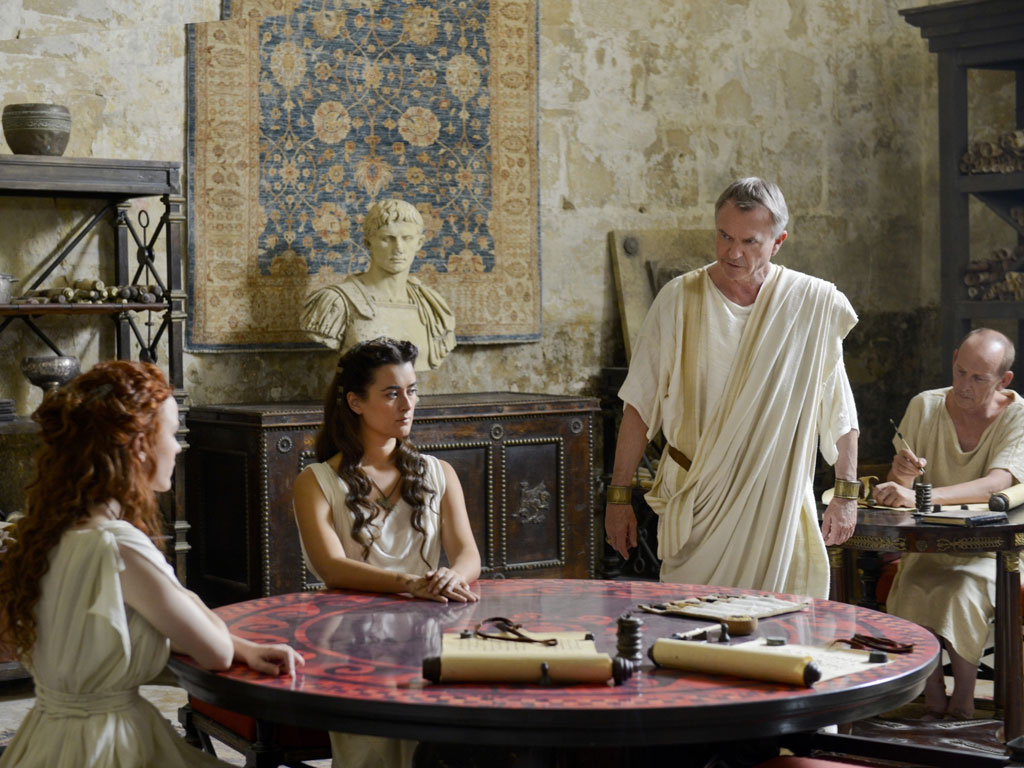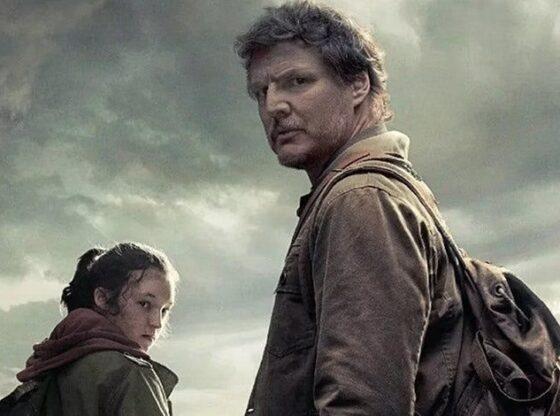On March 31 and April 1, CBS aired the two-episode, four-hour dramatic miniseries “The Dovekeepers,” based on Alice Hoffman’s novel of the same name.
The novel and the show tell the story of one of the last Jewish holdouts to the Roman Empire’s insurgence into Judea. In 70 A.D., Jews fled to the mountain fortress of Masada after the fall of Jerusalem in order to try and combat the Romans.
However, as most stories involving the Roman Empire, it has a tragic end for the Jews. In this context, the lives of the three Jewish women in charge of the fortress’s dovecotes—where the fortress’s messenger birds are kept—play out: the red-headed Yael (Rachel Brosnahan, “House of Cards”), Shirah (Cote de Pablo, “NCIS”) and Shirah’s warrior-like daughter Aziza, (Kathryn Prescott, “Skins”).
However, “Dovekeepers” suffers from apparent indecision about its genre—war epic, romantic drama, period piece, character study—leaving it somewhat disjointed. The novel itself, while telling Masada’s history, is more about the characters, something from which the TV show strays.
The show begins with Shirah and Yael—the sole survivors—telling the story of what happened at Masada to the Roman historian Josephus (Sam Neill, “Jurassic Park”) and then flashes back to the events leading up to the women’s separate arrivals at Masada and eventual lives on the desert fortress. These flashbacks to Masada and flash-forwards to Shirah and Yael telling their story continue as the main framing mechanism throughout both episodes of the show.
However, because of this, it’s hard for “Dovekeepers” to gain dramatic traction. Just as the plot gets going, historian Josephus—who was not at all a prominent character in the novel—interrupts it with yet another monologue about the might of the Roman Empire or a diatribe on Yael and Shirah’s apparent lack of morals.
The novel itself was written in the third person, alternating narratives between Yael, Shirah, Aziza and Rita—who was not included in the TV adaption—and the flashbacks seem to be the show’s writers’ attempt to stay true to the novel’s method of storytelling; however, it ends up being more detrimental.
The start-and-stop feeling created by the flashbacks also makes it difficult for the show to delve into character development, a feat that was going to be a hard enough due to the show’s four-hour limit against the novel’s 500-odd pages. Instead, the viewers are constrained to shortened versions of Yael, Shirah and Aziza’s stories. In fact, Yael’s brother Amram (Diego Boneta, “Rock of Ages”), a beloved warrior might have the most time to develop as he changes from Yael’s protector to a vicious fighter not above killing women and children.
While Yael and Shirah’s romances and struggles—infidelity, the general treatment of women during Biblical times, childbirth—are left to feel somewhat clichéd, Aziza’s character is perhaps given the worst treatment.
Born female, Aziza is forced to be raised as a boy by her mother while living among the Moab tribe with her stepfather, but resumes her life as a woman at Masada. However, a chain of events leads her to begin dressing as a man again and fighting with the other Jewish warriors. Unfortunately, The show doesn’t devote nearly enough time to her self-realization and relationships.
Nevertheless, Prescott’s acting stands out, along with Brosnahan’s (in particular Brosnahan, as she has the most screen time besides de Pablo) lending authenticity and credence to an at-times over-the-top script. De Pablo can feel a little one-note at times in her portrayal of the sensual Witch of Moab, Shirah.
Beyond the script, the adaptation also struggles with how to portray the mysticism that is apparent and so important throughout the novel. Each of these women is intensely religious and spiritual, and the way that the show portrays some of the things that they experience—like Yael’s at-times prophetic dreams—comes across as cheesy.
Looking back over the show, it most likely would have been better if it had both more time and episodes and if a different channel had produced the show, like HBO, which has had immense success with adaptations like “Game of Thrones.”
It’s easy to always say that the book is better, but in the case of “The Dovekeepers,” it really is true. Despite any high hopes for it, the TV adaptation of “The Dovekeepers” was unable to present the richness and depth of the book, leaving the mini-series stunted.











